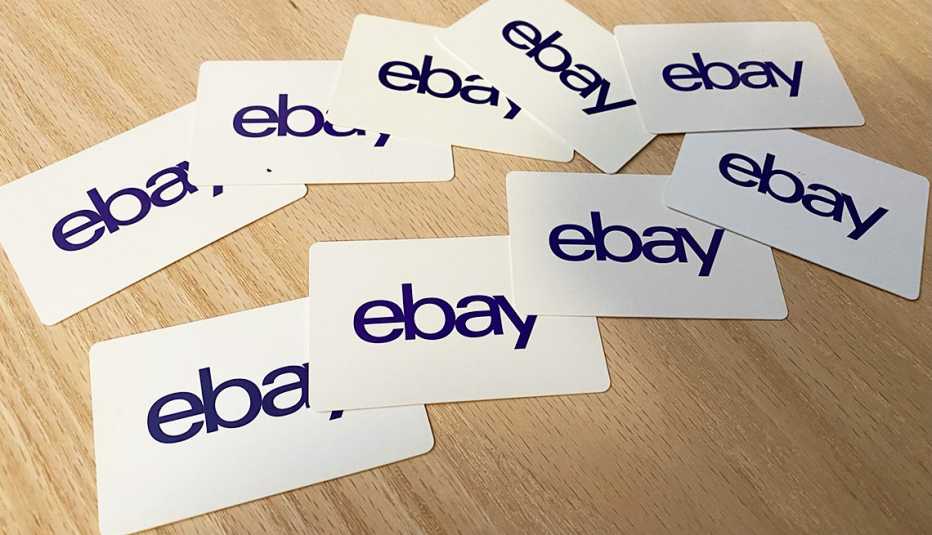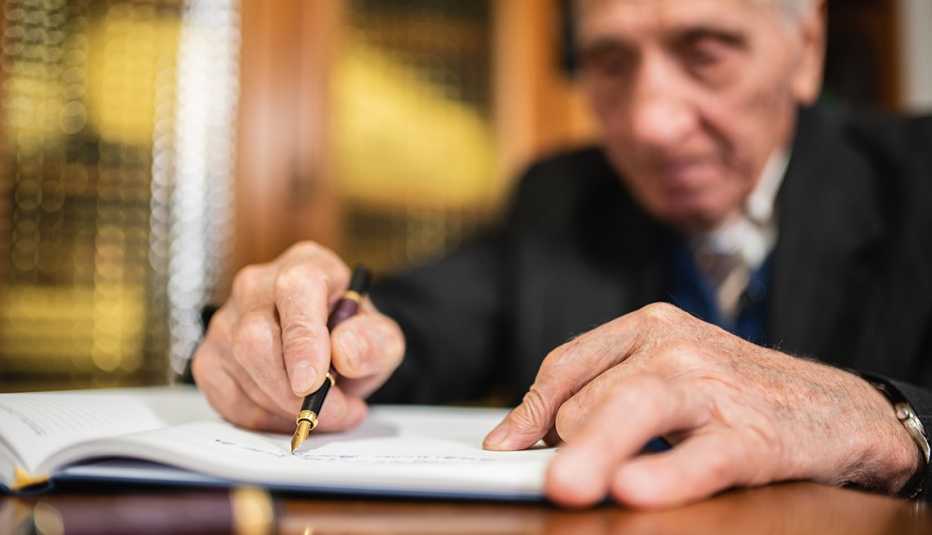Staying Fit
Who wouldn’t want $5.5 million, a new Mercedes-Benz and $10,000 more every month for life?
A 73-year-old retiree in Illinois sure did. Imagining the big bucks and the Benz, he did as he was instructed: He spent thousands of dollars on gift cards, mailed cash to outsiders and left money in his mailbox for a stranger to pick up.


AARP Membership— $12 for your first year when you sign up for Automatic Renewal
Get instant access to members-only products and hundreds of discounts, a free second membership, and a subscription to AARP the Magazine.
Altogether, the man tells AARP he lost about $27,000 paying for what he thought were the “operational costs” required for his winnings to show up. He still hasn’t collected a dime from the scam that started more than a year ago.
When he came to the realization that he’d been deceived, “I felt like somebody rolled over me with a cement truck,” he says during a video call. The criminals behind the ruse called often, sounded “very professional” and “knew what to ask and how to ask,” he recalls. “They put everything in very direct, understandable terminology.”
Such scams exact a heavy toll. Reported losses to prize, sweepstakes and lottery scams hit $185.4 million during the first nine months of 2021, surpassing the $167.3 million lost during all of 2020, the Federal Trade Commission says.
Nephew to the rescue
The Illinois man and his wife are childless. Fortunately, a 39-year-old nephew who is close to his aunt — his mother’s sister — lives nearby. Once the nephew stepped in, he tried repeatedly, and mightily, to convince his aunt and uncle that they were being defrauded. Next, he took steps to safeguard his aunt and uncle from the crooks and the next gang of thieves he was sure would come calling. (The family members are not being named to protect their privacy.)
Red flags, in retrospect
In hindsight, the nephew realized he had seen red flags. His aunt, who paid the couple’s bills, started to seem forgetful. Uncharacteristically, she was late paying for the monthly lease on her car, and late charges were stacking up. Signs of real trouble came later when the uncle called to ask his help to clear out the couple’s safe-deposit box. That seemed odd. The nephew knew his aunt had been with the same credit union for about 40 years, since she had opened an account for him there when he was born.
Kicked out of credit union
It turned out the credit union expelled the couple because crooks had sent them four checks totaling $27,700, supposedly to cover the money they’d expended. The personal checks were from a Louisiana credit union but mailed from Michigan.
Three of the Louisiana checks bounced — one for $8,700 and two for $5,000 — and the Illinois credit union refused to accept the fourth, the nephew says.
Signatures faked
Contacted in Louisiana and shown copies of the checks, the wife of the supposed signatory tells AARP the documents are forgeries. Her husband, in his 80s and suffering from dementia, has been battling identity theft and bank fraud since he lost his wallet some time ago, she says. “In no way, shape or form” are the check signatures his.
What happened next sent the nephew’s anxiety through the roof. After his aunt and uncle opened a checking account at a new bank, he heard his uncle on the phone giving the new routing and account numbers to a scammer. Those are numbers consumers should safeguard, but the uncle still seemed hopeful for the windfall dangled in front of him.
“We were in a crisis situation,” says the nephew, who canceled the new account. “I am convinced that if somebody didn't help them, they would now be homeless.”
Here are the 10 steps he took next:
1. Spent hours sorting through bills, junk mail and paperwork collected from their home to try to piece together what happened.
2. Assembled YouTube clips describing how older Americans are scammed, so his aunt and uncle could understand the subterfuge. A 2013 Dan Rather Reports series called “Just Hang Up” was persuasive, the nephew says. Doug Shadel, a veteran fraud fighter and AARP’s Washington state director, was among those interviewed in the series.
3. Obtained financial power of attorney.
4. Froze their credit so new accounts or loans could not be taken out in their names.


5. Contacted the gift-card companies involved to report the fraud. He was able to get back about $300 from eBay and about $200 from Visa Vanilla. The nephew surmises that most often the uncle gave away the gift card redemption codes, but sometimes he failed and left balances on the cards.
6. Worked the phones. He installed a call blocker on the couple’s landline to prevent incoming calls from Jamaica, where some of the scam calls originated. When the crooks persisted and called his aunt on her new cellphone, the nephew obtained a new number online from her telephone service provider.
7. Told his aunt and uncle to each use only one credit card with a low spending cap for daily needs. The nephew keeps another one of their cards and her cellphone to monitor their finances and pay their monthly bills.
8. Installed a doorbell camera.
9. Set up Informed Delivery with the U.S. Postal Service. The service gives consumers a digital preview of the letter-sized mail scheduled to arrive and tracks incoming packages, and the nephew keeps a close eye on what’s coming.
10. Signed up the couple for DMAchoice.org, which lets consumers opt out of unwanted catalogs and offers for credit, magazines and such. The service for 10 years costs $2.





































































